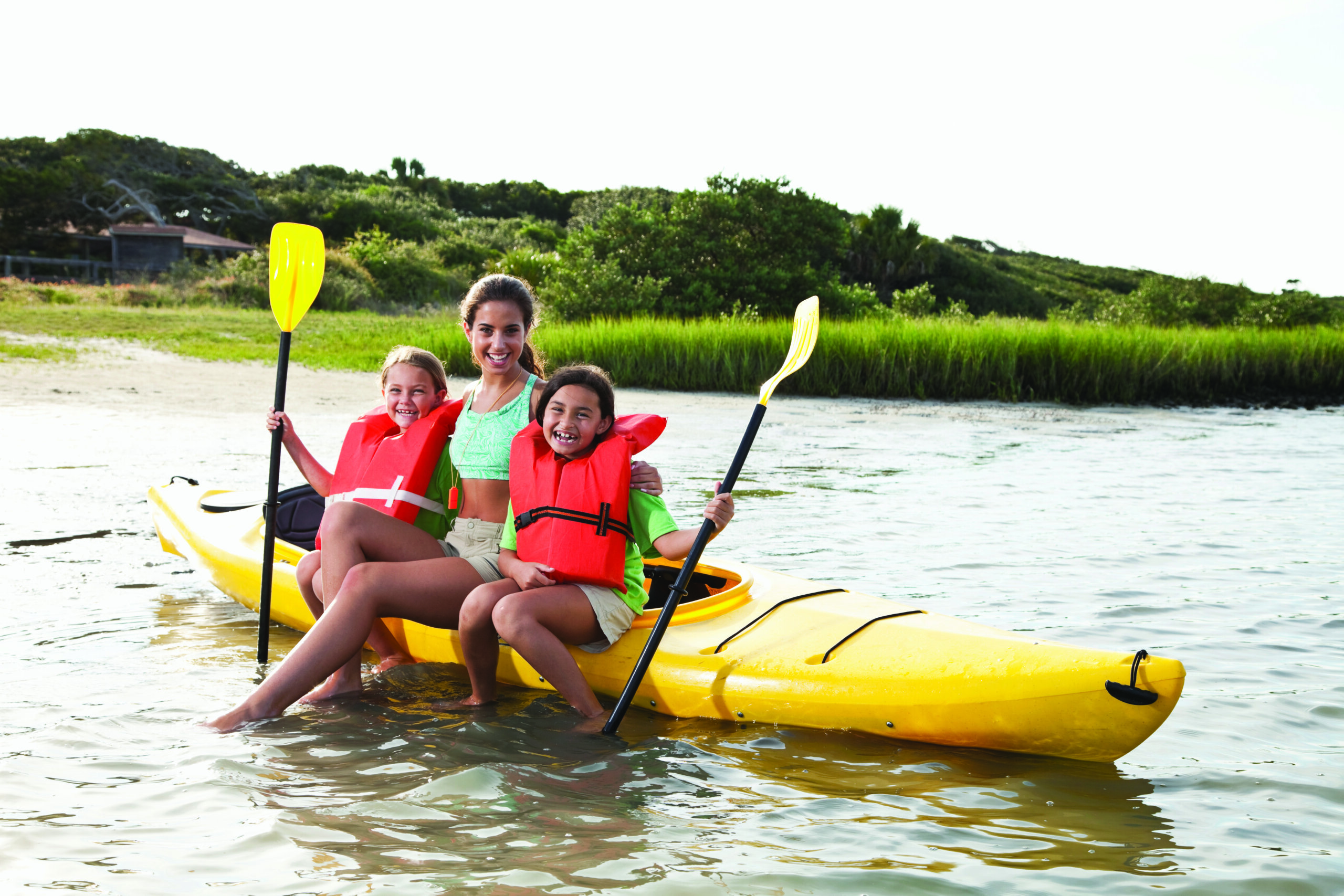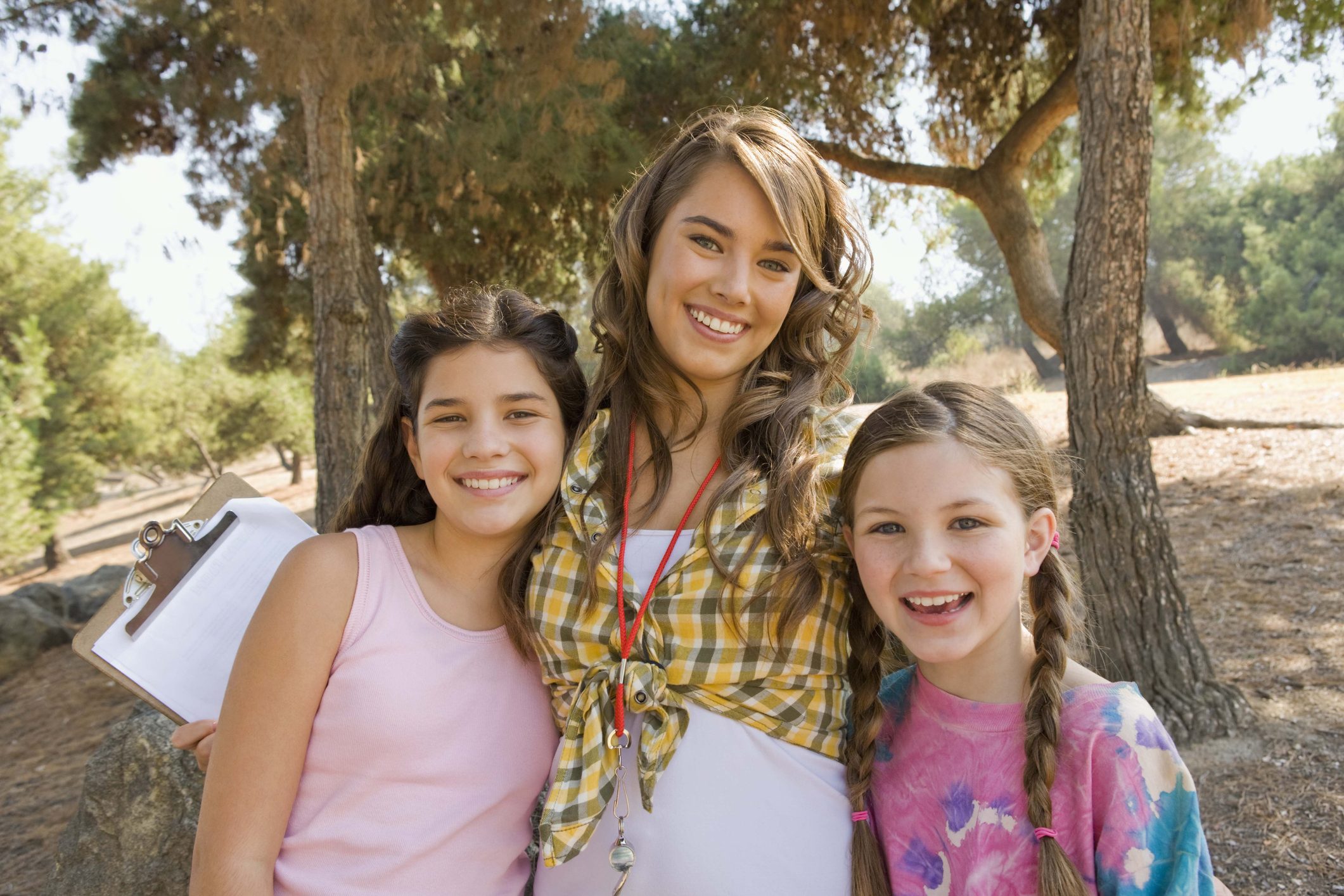10 Important Lessons Learned as a Summer Camp Counselor

As a kid, I spent eight incredible summers at a sleepaway camp where I made lifelong friends, learned about myself and my community, and grew and matured in numerous ways. While being a camper from the age of 9 to 16 was formative, the most important values, skills and life lessons I learned came in the years that followed when I became a staff member at the same camp.
Through my four years of being a counselor (and one year as a division head), I took away some invaluable lessons that have helped guide me through my personal and professional life.
Here are the 10 most important things I learned as a summer camp counselor.

Lessons from Being a Camp Counselor
1. Leadership skills: Imagine you’re a 17- or 18-year-old fresh out of high school, starting to transition into a more independent, adult life. You’re about to go off to college, or maybe you’ll soon start a new job, but it’s possible you’ve never had to make any big decisions for yourself yet. Working as a camp counselor puts you into an environment where taking charge and making decisions is a crucial part of the job. From planning programs, to making sure activities run smoothly, to leading groups of sometimes dozens of kids, developing leadership skills is a natural byproduct of getting the job done.
2. Responsibility: Many teens have been responsible for other people before, perhaps as a babysitter, lifeguard or some similar job. Camp counseling takes the fundamental parts of childcare and supervising kids to a whole new level, as counselors often care for large groups of children at once. When parents drop their kids off at camp, they are entrusting their kids’ safety in the hands of staff members. In my experience, that level of responsibility can improve young adults’ confidence and sense of self-worth, better preparing them for the responsibilities of adult life.
3. Teamwork: I was always the student in school who hated doing group projects; I almost always preferred to work on things alone and in my own way. I didn’t see the value in working with others when I was certain I could handle it all myself. That facade was quickly broken the first summer I worked as a counselor, realizing that one 17-year-old simply could not attend to the full-time needs of the dozen third-graders that were under my supervision. I learned early on that summer the importance of collaboration and teamwork with my co-counselors and other camp staff, and that asking for help is a sign of strength and maturity, not weakness.
4. Flexibility: As much as camp staffers try hard to provide structure and stick to their schedules and plans, we all know that sometimes life has other plans. A change in weather can derail the outdoor obstacle course you spent hours setting up. A crying kid can pull you away from whatever task you were trying to work on. Running out of art supplies before craft time is over means you may need to improvise entertainment for the next 20 minutes. No matter what the situation is, a camp counselor must learn to be flexible and ready to switch gears at a moment’s notice, a life skill many adults don’t even learn.
5. Nothing is the end of the world: Going hand-in-hand with being flexible, one of the biggest lessons I take away from every summer spent at camp is that nothing is the end of the world, even though it may feel that way. Especially when you’re spending weeks in a “camp bubble” and taking your counseling responsibilities seriously, the smallest things can feel dire. When you’ve spent all week planning a basketball tournament for the whole camp, and suddenly day-of, all the basketballs in camp are missing, it can feel like the end of the world. Working at camp taught me how to take a step back from a situation, see the big picture, and put stressful situations into perspective, a skill I’ve carried over into other aspects of my life.
6. Creativity is key: Before working as a camp counselor, I never would have considered myself to be a particularly creative person. Having to entertain kids of all ages for eight weeks straight every summer definitely showed me that I was wrong. Needing to have fresh and fun programming for every day of the summer pushed me to think outside of the box and really get creative with the activities I was planning. Now, I can easily write a brand-new program for a group of campers with just a little brainstorming and imagination.
7. Importance of community: For campers and staff members alike, summer camps are integral in fostering community and meaningful relationships. Most camps are centered around some common identity, be it a shared hobby, geographical area, religion or personal values. My camp, for example, was a Jewish sleepaway camp, meaning for two months of the year, I was completely immersed in Jewish culture and surrounded by other Jewish people from around the world. As a young adult struggling to find my place and purpose in the world, camp provided a welcoming environment every summer where I could feel seen and understood by those around me. No matter what community you belong to, camp is an amazing place to learn and reinforce the values that are important to you and your life.
8. Fostering friendships: In addition to building relationships to a community as a whole, summer camps have the power to create and nurture lifelong friendships. Some of my closest and oldest friends are people I met my first year as a camper, and every year that I returned only yielded more and more incomparable friendships. To this day, any time I return for a quick visit in the summertime, I get to develop bonds with new and interesting people in an environment that promotes togetherness and camaraderie, a fact I never take for granted!
9. Working in stressful situations: Let’s be real; taking care of kids is stressful. Even at day camps, where the campers go home at the end of the day, ensuring the safety and wellbeing of dozens of kids (while also keeping them entertained and happy) is a lot of work. Being a counselor gave me tons of skills for coping with stressful situations by teaching me patience, empathy and quick-thinking problem-solving techniques. As I went through college and now in my professional career, the stress management skills I learned at camp have prepared me for life’s challenges and empowered me to manage whatever life may throw at me.
10. Finding the fun in everything: While working at summer camp certainly can be difficult at times, it is also the most fun job a young adult could ask for. Working outdoors, making friends, watching kids be silly, and seeing your campers grow and mature throughout the summer is incredibly rewarding. As a camp counselor, you are the mood setter for every situation: if you’re having fun, the kids will have fun, too. Learning to take the ordinary everyday stuff and turn it into something exciting improves both your own life and the lives of those around you.



